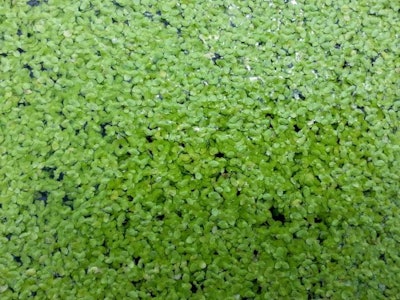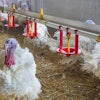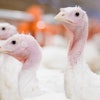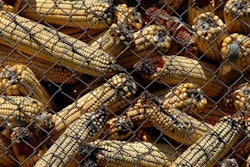
Exclusive Feed International report preview:
Commonly known as duckweed or water lentil, Lemna is a rapidly growing aquatic plant with high protein content (35 to 45 percent).
Traditionally, it has been eaten and used as an animal feedstuff in many parts of the world. Commercially, it is cultivated in large growth systems: harvested, dried and further processed to ensure a consistent product. Recent research has shown Lemna to be a useful protein source for pigs and poultry.
Read the entire report about lemna exclusively in the June/July issue of Feed International.
Historically fed to poultry in Asia and Latin America, Lemna species are simple, free-floating plants that mainly grow by vegetative reproduction, producing high yields. It can double in volume in just two days. Under optimal conditions, this aquatic plant can produce 10 to 30 tons per hectare of dried duckweed each year.
Lemna protein concentrate (LPC) is a product produced from the further processing of Lemna. This protein- and energy-rich ingredient is suitable for use in pig, poultry, pet and aqua diets. It has an essential amino acid concentration that is higher than other vegetable proteins and its amino acid profile is comparable to animal proteins, including fishmeal.
Lemna is also naturally high in minerals, trace elements, vitamins and phytochemicals, including carotenoids.
This report discusses lemna's ingredient value, amino acid digestibility, and its use in the future, as well as the sustainable farming of lemna.

















